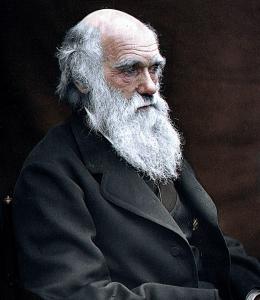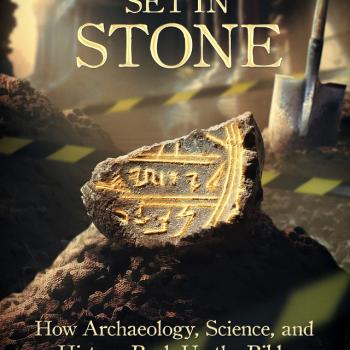Chapter 10 (pp. 87-89) of my book, Reflections on Radical Catholic Reactionaries (December 2002; revised second edition: 17 August 2013; slightly revised again in November 2023 for the purpose of the free online version). Anyone who reads this book should first read the following three introductory articles, in order to fully understand the definitions and sociological categories I am employing:
Introduction (on the book page)
Definitions: Radical Catholic Reactionaries, Mainstream “Traditionalists,” and Supposed “Neo-Catholics” [revised 8-6-13]
Radical Catholic Reactionaries: What They Are Not [9-28-21]
If you’re still confused and unclear as to my meanings and intent after that, read one or more of these articles:
Rationales for My Self-Coined Term, “Radical Catholic Reactionaries” [8-6-13]
My Coined Term, “Radical Catholic Reactionary”: Clarifications [10-5-17]
Clarifying My Coined Term, “Radical Catholic Reactionary” [4-3-20]
This book is modeled after the method and structure of the French mathematician and Catholic apologist Blaise Pascal’s classic, Pensées (“thoughts”). Catholic apologist and philosopher Peter Kreeft described this masterpiece as “raw pearls” and “more like ‘sayings’ than a book . . . ‘Sayings’ reflect and approximate the higher, the mode of Christ and Socrates and Buddha. That’s why Socrates is the greatest philosopher, according to St. Thomas (S.T. III, 42, 4).”
*****
- It is beyond silly for any Catholic to use the title evolutionist as a sort of insult or epithet, or implied synonym for modernist, in light of the fact that Ven. Pope Pius XII, in his encyclical Humani Generis (1950) clearly permitted the belief in evolution for Catholics (with only minor restrictions). If radical Catholic reactionaries wish to dissent from that encyclical also, they ought to honestly and openly broadcast their dissent, rather than conveniently conceal a fact that they must be aware of, judging from their generally high degree of knowledge with regard to Catholic theology.
- Ven. Pope Pius XII, in his encyclical, Humani Generis (12 August 1950), declared upon the relationship of evolutionary theory to the Catholic Faith:
-
- For these reasons the Teaching Authority of the Church does not forbid that, in conformity with the present state of human sciences and sacred theology, research and discussions, on the part of men experienced in both fields, take place with regard to the doctrine of evolution, in as far as it inquires into the origin of the human body as coming from pre-existent and living matter — for the Catholic faith obliges us to hold that souls are immediately created by God. However this must be done in such a way that the reasons for both opinions, that is, those favorable and those unfavorable to evolution, be weighed and judged with the necessary seriousness, moderation and measure, and provided that all are prepared to submit to the judgment of the Church, to whom Christ has given the mission of interpreting authentically the Sacred Scriptures and of defending the dogmas of faithful [11] Some however rashly transgress this liberty of discussion, when they act as if the origin of the human body from preexisting and living matter were already completely certain and proved by the facts which have been discovered up to now and by reasoning on those facts, and as if there were nothing in the sources of divine revelation which demands the greatest moderation and caution in this question.
- When, however, there is question of another conjectural opinion, namely polygenism, the children of the Church by no means enjoy such liberty. For the faithful cannot embrace that opinion which maintains either that after Adam there existed on this earth true men who did not take their origin through natural generation from him as from the first parent of all or that Adam represents a certain number of first parents. Now it is in no way apparent how such an opinion can be reconciled with that which the sources of revealed truth and the documents of the Teaching Authority of the Church propose with regard to original sin, which proceeds from a sin actually committed by an individual Adam and which through generation is passed on to all and is in everyone as his own. [12]
- Note that belief in the theory of evolution is in no wise prohibited by Ven. Pope Pius XII for Catholics in good standing. The pope could have easily stated such a prohibition if indeed this was what the Church wished to teach. But he did not. Good Catholics may believe in evolution in good conscience, provided that they do not accept it in a materialistic fashion, do not deny that each individual soul is a direct creation of God, or accept the false notion of polygenism — which view adversely affects original sin.
- How is it that many reactionaries speak so dogmatically of evolution, as if it were utterly impermissible for a Catholic to believe? By what authority do they do so? By what reasoning do they refer to the present Holy Father as an “evolutionist,” as if this were some terrible and scandalous epithet and horrific state of affairs? And how do they manage to blatantly disobey the encyclical Humani Generis, from Ven. Pope Pius XII in 1950, which itself is quite harsh on modernism in other sections? More internal contradiction and self-defeating arguments . . .
*
*****
*
*
Summary: Chapter 10 of my book, Reflections on Radical Catholic Reactionaries (December 2002; revised in November 2023 for the purpose of the free online version).













